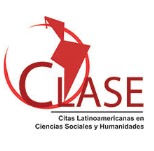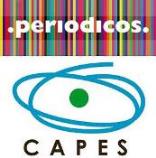Social constructionist systemic view and the uses of digital media by children and youths
DOI:
https://doi.org/10.38034/nps.v32i76.716Keywords:
social constructionism, family therapy, childhood, youth, digital mediaAbstract
This article consists of a narrative review of the literature about the use of digital media by children and young people under a systemic social constructionist approach. How is the notion of risk constructed and in what contexts are media potentialities or risks and problems for socio-emotional development described? The literature using the systemic social constructionist perspective describes changes in the spheres of the self and relationships, associated with the use of digital media. Some studies question the supposed rhetoric of “addiction” and essentialism bias, involving political, discursive, ideological aspects, market interests, in addition to fundamental categories (of race, gender, sexuality) intertwined in the experimenting of young users on digital screens. This study emphasizes the sphere of embodied dialogues and joint action between the multiple agents involved. The social constructionist systemic view expands the intelligibility of this theme, with possibilities of invitations to reflection, useful in preventive and clinical contexts.
Downloads
Downloads
Published
How to Cite
Issue
Section
License
Autores que publicam nesta revista concordam com os seguintes termos:- Autores mantém os direitos autorais e concedem à revista o direito de primeira publicação, com o trabalho licenciado simultaneamente sob uma Licença Creative Commons Attribution após a publicação, permitindo o compartilhamento do trabalho com reconhecimento da autoria do trabalho e publicação inicial nesta revista.
- Autores têm autorização para assumir contratos adicionais separadamente, para distribuição não-exclusiva da versão do trabalho publicada nesta revista (ex.: publicar em repositório institucional ou como capítulo de livro), com reconhecimento de autoria e publicação inicial nesta revista.
- Autores têm permissão e são estimulados a publicar e distribuir seu trabalho online (ex.: em repositórios institucionais ou na sua página pessoal) a qualquer ponto antes ou durante o processo editorial, já que isso pode gerar alterações produtivas, bem como aumentar o impacto e a citação do trabalho publicado (Veja O Efeito do Acesso Livre).

















